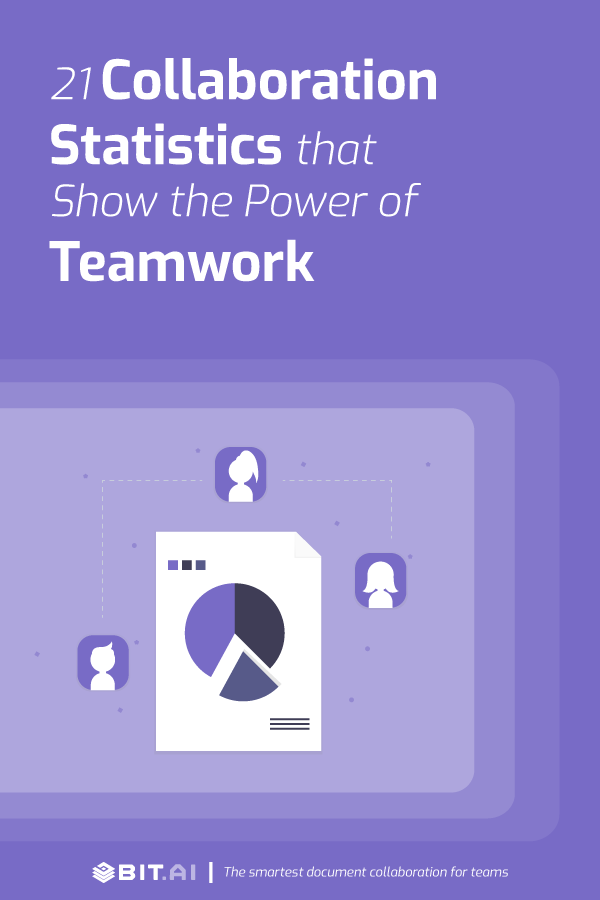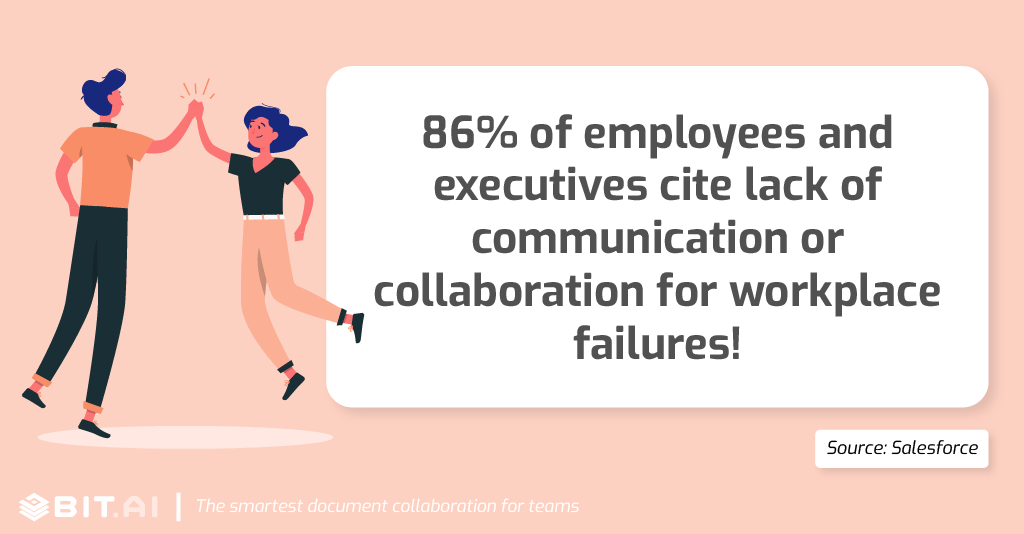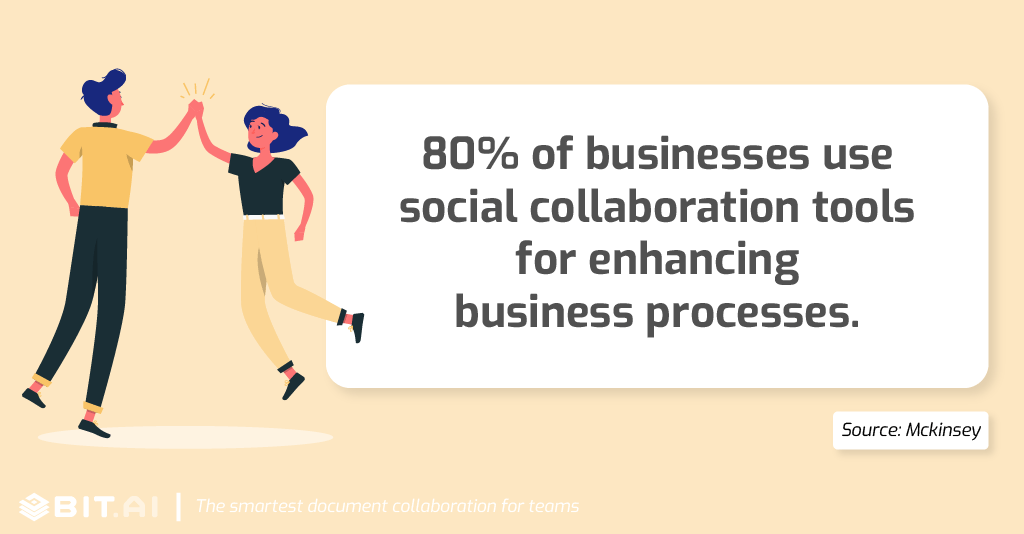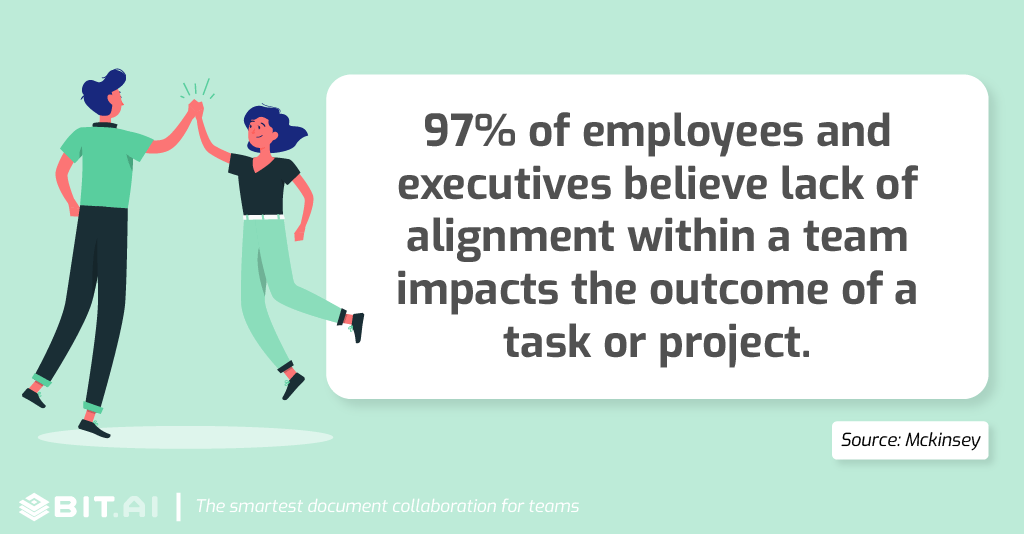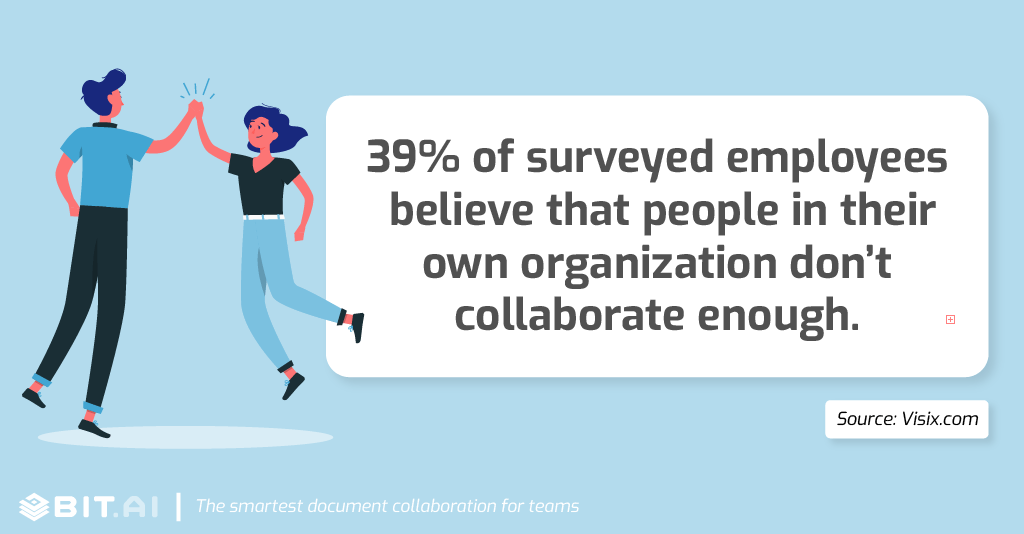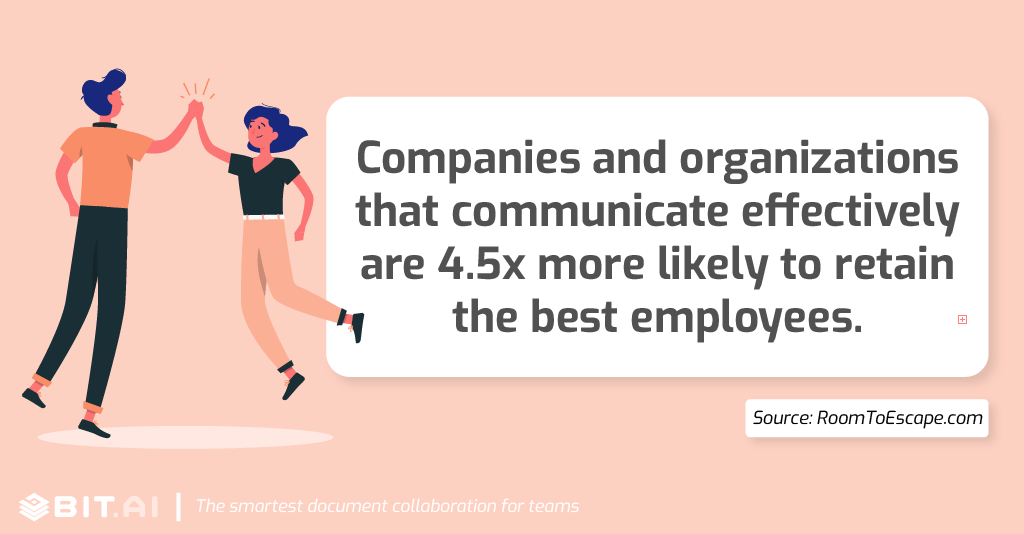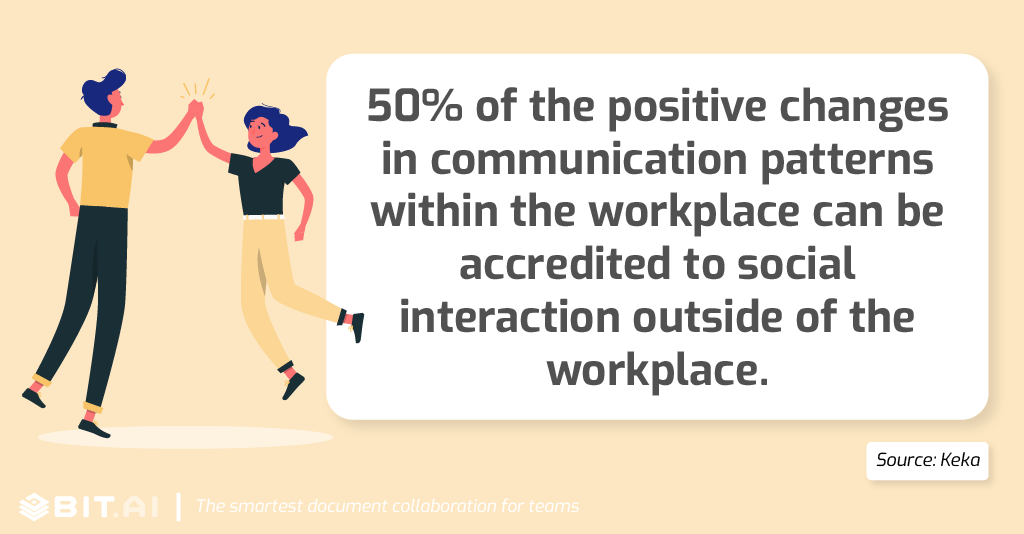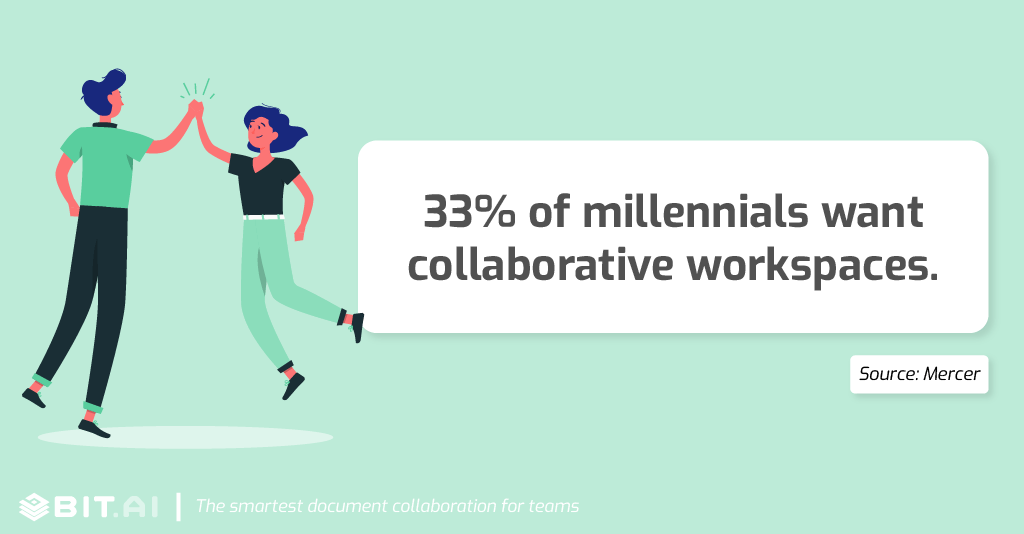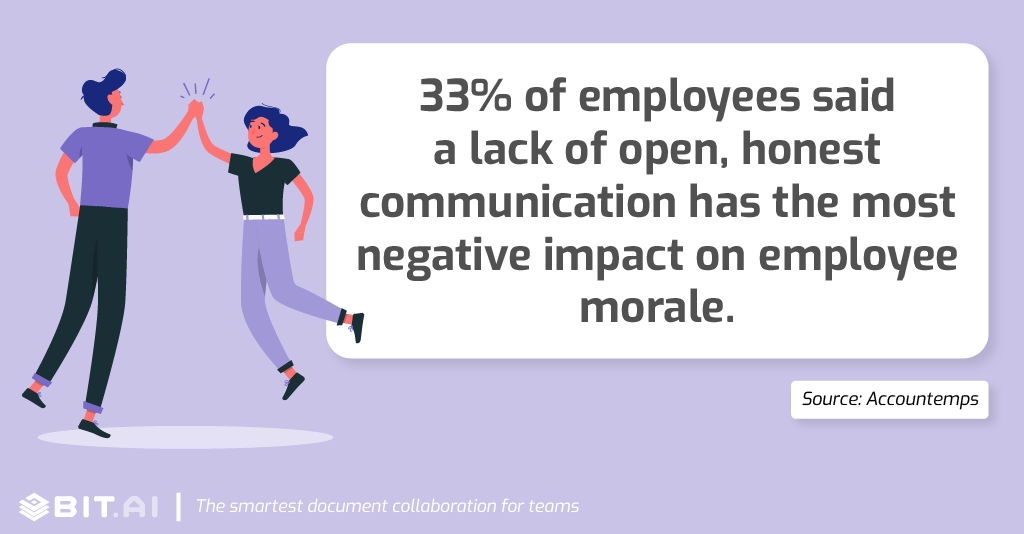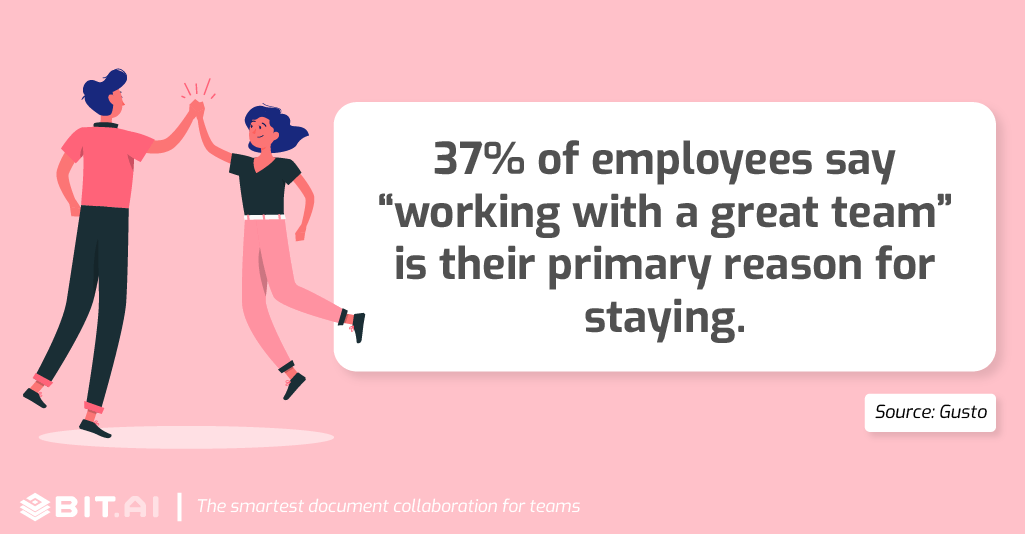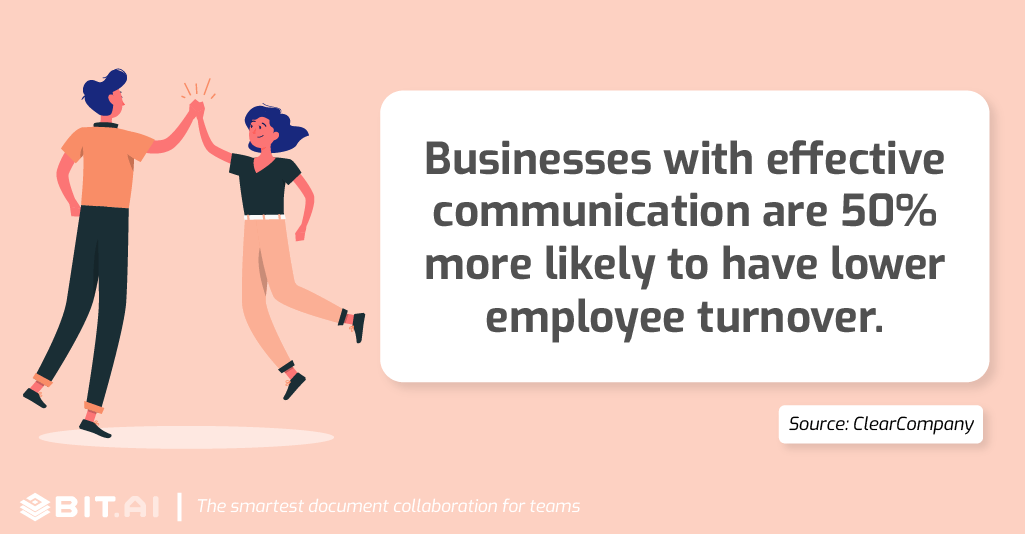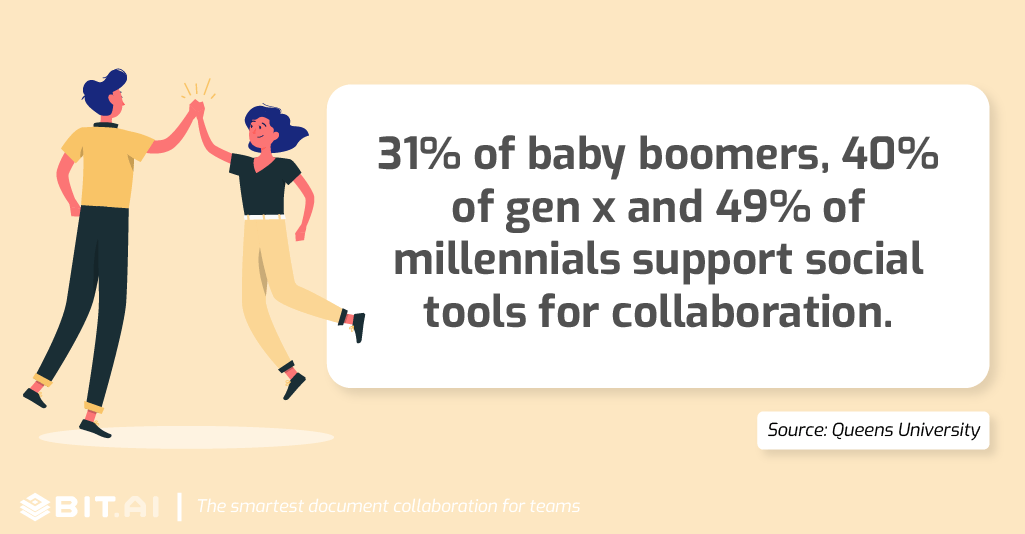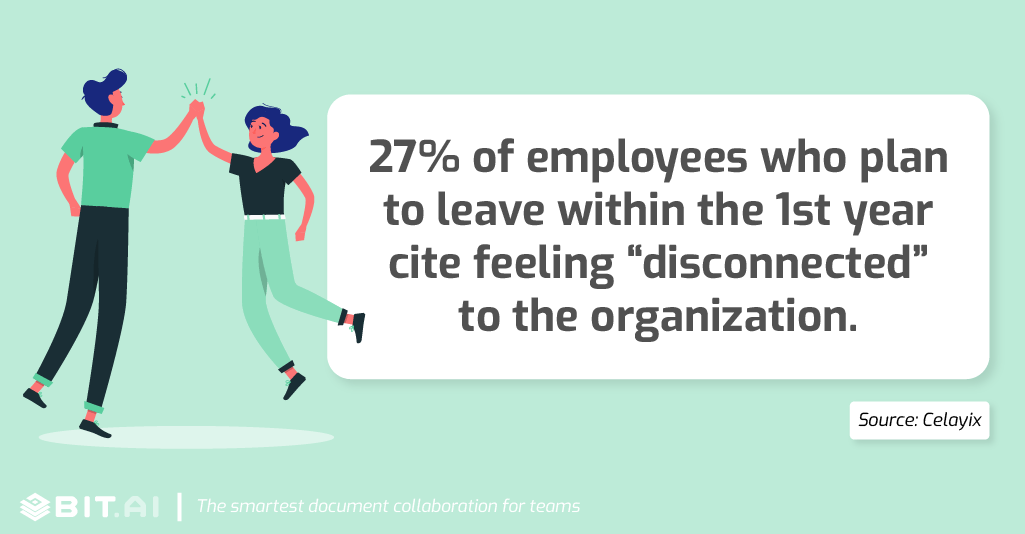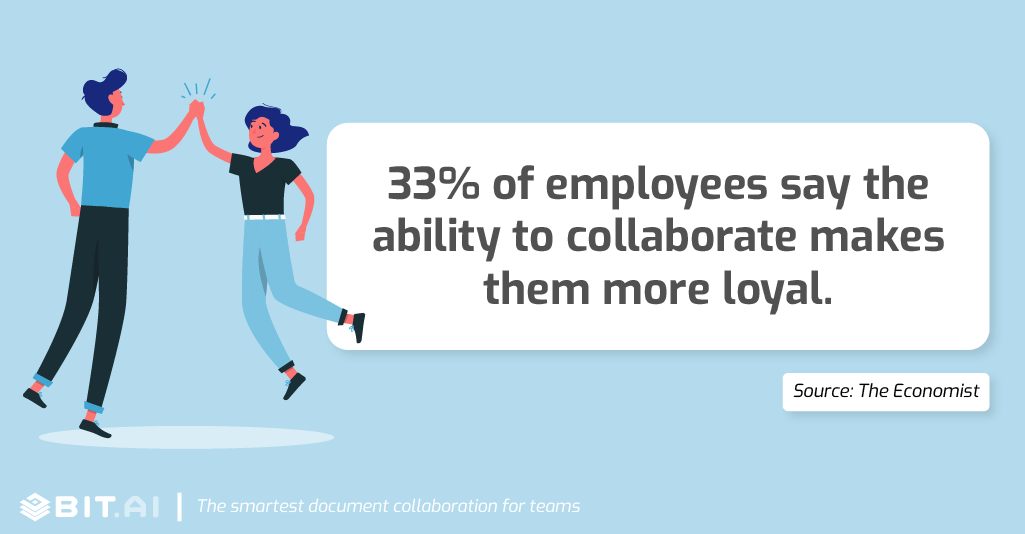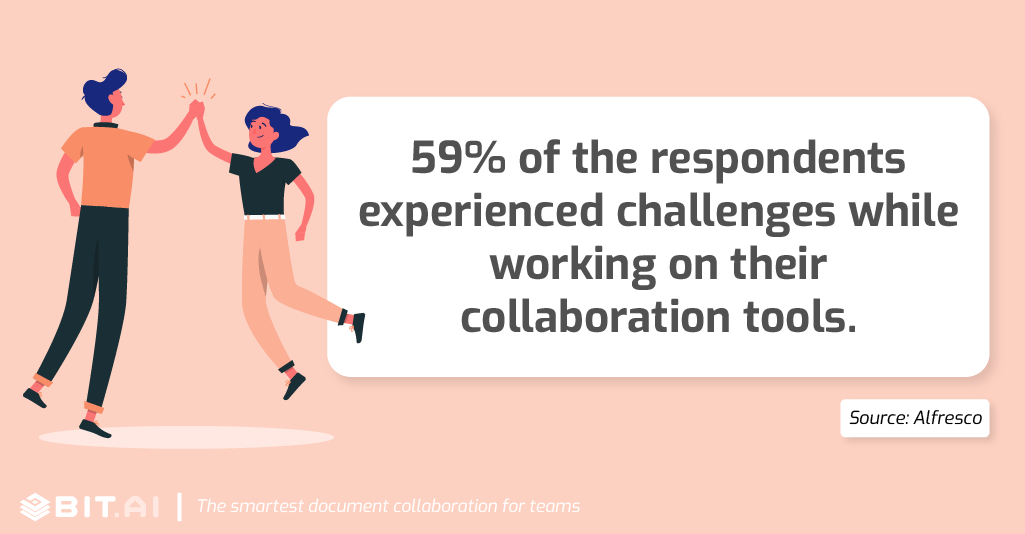Want to know the importance of teamwork and collaboration? These collaboration statistics might help!
Every day your company is fighting a different battle, trying to survive, beat the competition, and achieve goals efficiently.
However, the challenge becomes that much easier when you have people around you to share the load within the workplace.
When brilliant minds, with big ambitions, work towards a common goal, amazing things happen. Employees are able to complement each other’s strengths and weaknesses and eventually become unstoppable. This is why collaboration and teamwork play a crucial role in the success of any business.
However, collaboration and teamwork remain one of the most underrated and underutilized workplace tactics.
Even though collaboration can stimulate creativity, increase productivity, builds a sense of community, improves problem-solving, and can lead to groundbreaking innovations and ideas, it remains one of those commonly underutilized tools.
We all like to work in our little corners, wanting to get work done without any external distractions. However, only when brilliant minds collide that new ideas, methodologies, processes, and procedures are born.
Collaboration in the Modern Time
Over the past decade, online collaboration tools have really taken off, and for a good reason. As employees become more independent and the culture of remote working rises, collaboration tools allow teams to work together and achieve goals without being physically present together in the workplace.
As more businesses allow employees to work remotely from cafes or the comfort of their homes, the need for collaboration tools is only going to increase.
There are numerous benefits of collaboration tools, including:
- Clear and precise delegation of work
- An easier way to work across geographic locations
- A faster way to work across teams and departments
- Increased productivity
- Better tracking and reporting
- Better organization of workplace documents
It is shocking that companies still communicate and collaborate over email and have not adopted cloud collaboration tools like Bit to increase their productivity.
Top Team Collaboration Statistics in 2022!
If you still need convincing about the importance of collaboration and teamwork in the workplace and how profoundly it can impact your bottom line, don’t worry, we got this.
We have curated a list of some shocking as well as eye-opening collaboration statistics that’ll make rethink how you think about collaboration in the first place.
Collaboration Statistics #1
About 75% of employers rate teamwork and collaboration as “very important”, yet only 18% of employees get communication evaluations at their performance reviews.
Collaboration Statistics #2
86% of employees and executives cite lack of collaboration or ineffective communication for workplace failures.
Collaboration Statistics #3
Up to 80 percent of businesses use social collaboration tools for enhancing business processes.
Collaboration Statistics #4
97% of employees and executives believe lack of alignment within a team impacts the outcome of a task or project.
Collaboration Statistics #5
39% of surveyed employees believe that people in their own organization don’t collaborate enough.
Collaboration Statistics #6
54% of employees say a strong sense of community (great coworkers, celebrating milestones, a common mission) kept them at a company longer than was in their best interest
Collaboration Statistics #7
99.1% prefer a workplace where people identify and discuss issues truthfully and effectively. >50 % say their organization discusses issues truthfully and effectively.
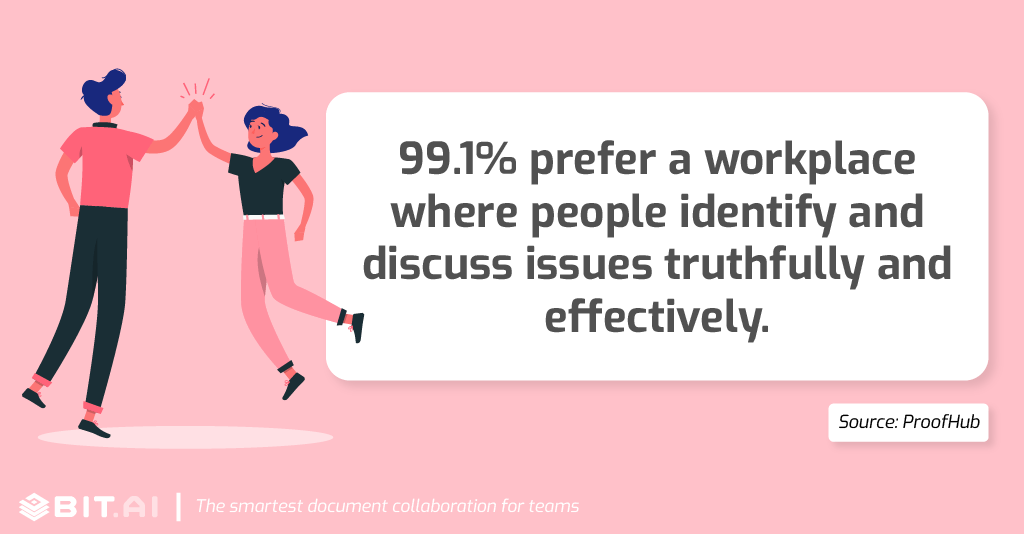
Collaboration Statistics #8
Companies and organizations that communicate effectively are 4.5x more likely to retain the best employees.
Collaboration Statistics #9
50% of the positive changes in communication patterns within the workplace can be accredited to social interaction outside of the workplace.
Collaboration Statistics #10
33% of millennials want collaborative workspaces.
Collaboration Statistics #11
Only 5.9% of companies communicate goals daily.
Collaboration Statistics #12
33% of employees said a lack of open, honest communication has the most negative impact on employee morale.
Collaboration Statistics #13
37% of employees say “working with a great team” is their primary reason for staying.
Collaboration Statistics #14
Businesses with effective communication are 50% more likely to have lower employee turnover.
Collaboration Statistics #15
The Queens University survey found that there is significant support for the use of social tools for workplace collaboration. 31% of baby boomers (1946 – 1960s), 40% of Gen X (1960s to 1980s) and 49% of millennials (1980s to 2000s) support social tools for collaboration.
Collaboration Statistics #16
27% of employees who plan to leave within the first year cite feeling “disconnected” to the organization.
Collaboration Statistics #17
33% of employees say the ability to collaborate makes them more loyal.
Collaboration Statistics #18
According to an Alfresco survey of more than 753 business professionals, it was found that nearly 83% of professionals depend on technology to collaborate. 82% of the participants also felt that they would feel impacted if this technology to collaborate was lost.
Collaboration Statistics #19
Only 49% of the participants claimed to use mobile devices for collaboration. However, 92% of them think it is important.
Collaboration Statistics #20
59% of the respondents experienced challenges while working on their collaboration tools. Interestingly, 71% of millennials faced challenges while just 45% of baby boomers concurred.
Collaboration Statistics #21
According to a report published by McKinsey, knowledge workers spend an average of 14% of their workweek in communicating and collaborating internally. The study also showed that improving the internal collaboration through social tools could help raise the productivity of interaction by as much as 20 to 25 percent.
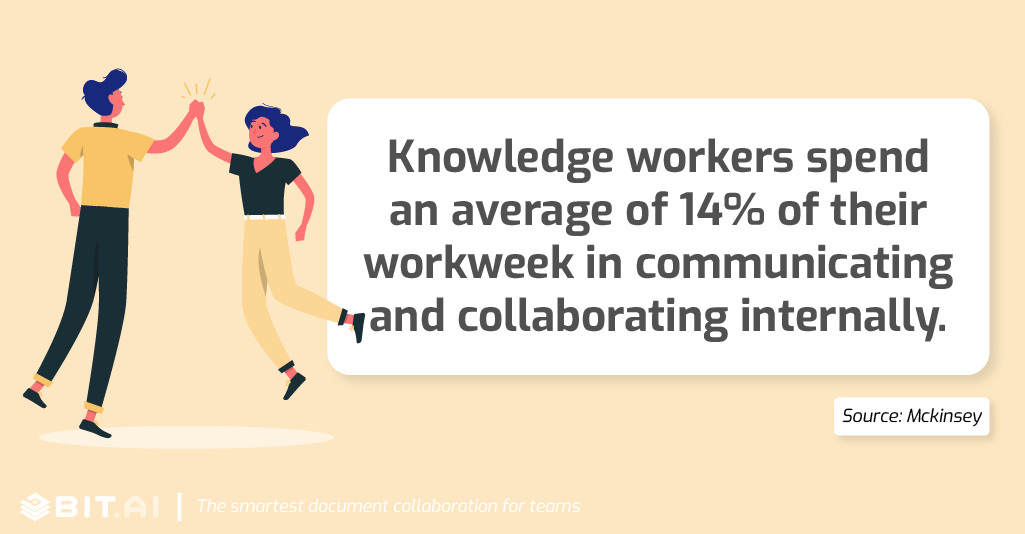
Don’t forget the biggest asset for any company is its employees. When these employees come together and combine their knowledge and expertise, big things are bound to happen.
Make sure your workplace has a healthy culture of teamwork and collaboration to stay ahead of the competition and achieve success. Oh and by the way, if you need a collaboration tool that’ll help bring your team closer than ever, Bit is just the tool you need!
Further reads:
- Top Real-Time Document Collaboration Tools For Team Productivity
- 31 Uplifting Collaboration Quotes To Ignite Successful Teamwork (Infographic Included)
- 50 Best Team Building Activities For Collaboration
- What Is Workplace Collaboration And How To Do It Right!
- Top 10 Benefits of Teamwork You Must Know!
- Benefits Of Collaboration For Teams And Businesses
- 31 Teamwork Quotes That Will Fire Up Your Team!
- 30 Hard Work Quotes To Get You Motivated For Success
